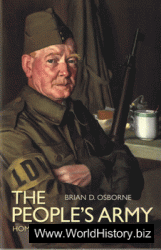Exchanging housing with someone else was a common and legal way to cope with the severe need for adequate room. Every big city had its Bureau of Housing Exchanges, which kept files of information about people who wanted to swap housing, but otherwise bureau officials were not helpful. Big-city housing exchanges also published a bulletin for housing exchanges, but this potentially useful publication could be hard to find, especially in Moscow. As a result, across the Soviet Union people regularly and informally gathered outdoors to post advertisements and meet with others who had apartments or rooms to trade. The Moscow housing exchange market, in an old section of the city, was one such lively swap meet. Even in freezing blustery weather one would see
Hundreds of people... milling about for hours, like pickets on strike: hands thrust into their pockets, scarves wound tightly against the cold, carrying placards or hand-scrawled signs pinned to their leather jackets and sturdy cloth coats.'*’
People also found out about housing exchanges through notices posted all over cities, wherever others would be likely to see them.
Such exchanges were often extremely complex, involving numerous families and types of shelter. Before the state exiled him to the city of Gorky in 1980 Andrey Sakharov and his wife, Elena Bonner, needed an apartment big enough for themselves, her daughter and son-in-law, two grandchildren, and Elena's mother, Ruth Bonner. They had their eyes on a four-room communal apartment occupied by three separate families, all of whom wanted better living arrangements. Their intricate plan took a year to craft, involved 17 people and five apartments, and finally satisfied everyone except the local soviet executive committee, which vetoed the exchanges on the grounds that one of the women involved would end up with six and three-quarters square meters of living space beyond the legal norm. The real reason for the veto may well have been Sakharov's political nonconformity. Another intricate Moscow "musical chairs" exchange, organized by a young couple with a baby, involved six apartments and eight families, plus 500 rubles to an elderly man who had his doubts about moving. Even when all parties agreed, such complicated swaps had to pass bureaucratic hurdles. The exchange had to be okayed by city authorities to ensure no one violated the complex rules about who was entitled to how much living space, and that everyone involved was permitted to live in the city where the exchange would take place.




 World History
World History









